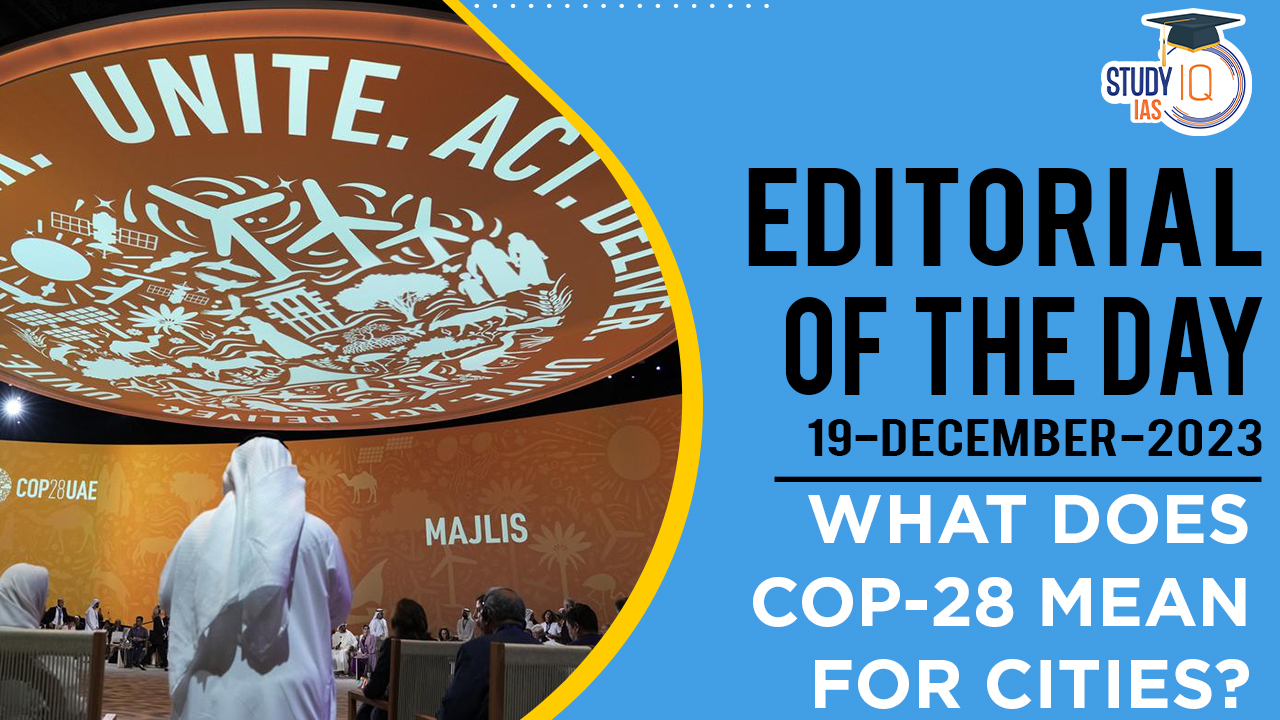Table of Contents
Context: The 28th Conference of Parties (COP-28) in Dubai highlighted the significance of cities in addressing climate change.
Linkages With The Cities
- Currently, 55% of the global population is urban and this is expected to reach 68% by 2050.
- The urban world today consumes nearly 75% of primary energy and is responsible for roughly 70% of CO2 (76% of total GHG) emissions.
- Therefore, desired results of the Paris commitments are not possible without addressing urban issues.
We’re now on WhatsApp. Click to Join
Major event for urban area development at COP-28
- City leaders advocate multi-level green governance and direct action.
- Formal recognition of cities in climate negotiations sought.
- Cross-level collaboration and direct funding for city action needed.
- Bold changes needed to break federal government control.
Challenges & Strategies for Cities in the Global South
- Weaker Governance: Compared to their counterparts in the North, cities in the Global South often grapple with inadequate infrastructure, inconsistent policies, and limited resources.
- Informal Employment: A sizable portion of their population relies on informal work, lacking essential benefits and social safety nets, making them particularly vulnerable to economic shocks and climate change impacts.
- Climate Change Exposure: These cities are disproportionately affected by rising sea levels, extreme weather events, and water scarcity, posing significant threats to infrastructure, health, and livelihoods.
Ways of achieving progress
- City governments need to be involved in National Adaptation Plans and Nationally Determined Contributions.
- Creating a climate atlas of cities, for mapping them and identifying most vulnerable hotspots.


 Cabinet Committee on Political Affairs (...
Cabinet Committee on Political Affairs (...
 World Press Freedom Day 2025, Theme, His...
World Press Freedom Day 2025, Theme, His...
 WAVES Summit 2025: India’s Biggest Ent...
WAVES Summit 2025: India’s Biggest Ent...





















